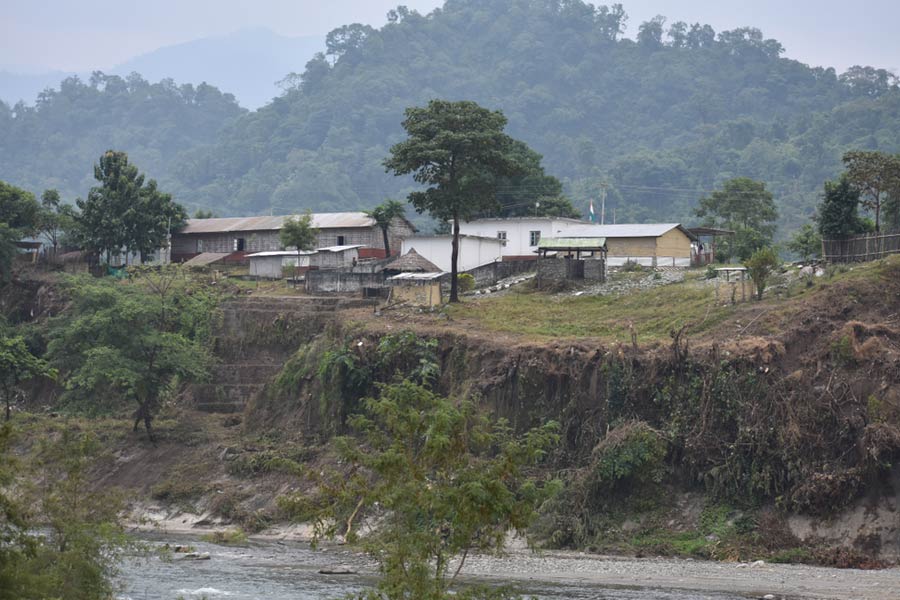Roads and other public places littered with garbage are often found in various urban and rural areas across the country, but a non-descript village atop a hill in Arunachal Pradesh is spick and span always, thanks to the efforts of the residents who are fined if caught throwing wastes outside their homes.
For a first-timer to Kugi Pomte, situated about 12 kilometres from West Siang district headquarters Aalo, it looks like a typical Garo community village. However, it stands apart from others as villagers ensure that no garbage is left unattended for more than a day.
The villagers developed the habit of keeping their village clean since the ‘80s, much before the launching of the central government’s sanitation programmes - the Nirmal Bharat Abhiyan in 1999 or the Swachh Bharat Mission in 2014.
“The outbreak of malaria and other diseases in the '80s was the main cause that prompted us to adopt cleanliness and sanitation in the village. We sensitised the villagers about keeping our surroundings clean and maintaining personal hygiene to keep diseases at bay.
“Initially, it was tough, but people have realised the benefits of cleanliness, and it has helped in maintaining the tempo,” Village Secretary Jomgam Ete said.
None will find polythene bags, plastic bottles, dead animals and littered trash in the village.
All non-biodegradable items are dumped at a designated place outside the village from where a government agency collects them and takes them somewhere else. Dead animals and poultry birds are buried at a particular site.
“There are some rules and regulations which have to be followed by all. Breaching the rules invites a penalty to the tune of Rs 500. Besides, those who violate the rule will have to lift the garbage immediately,” the village secretary said.
Open defecation will also invite a heavy penalty. All fine amounts go to the Village Council.
With nearly 30 households and a population of over 183 adult members, the village achieved 100 per cent sanitation by constructing individual household toilets in November 2003, Ete said.
The village received a trophy from the West Siang district administration for its sanitation drive in 2004. It was also conferred with the Nirmal Gram Puraskar by the then state Governor, Gen (Retd) J J Singh five years later.
The villagers conduct cleanliness drives twice a year – sometime in August and October 2. The date in August is decided by the villagers according to their convenience.
“Every year, we discuss ways to improve sanitation and hygiene,” Dege Ete, a villager said.
Interestingly, smoking is strictly prohibited during major public gatherings or ceremonies in the village. Serving of Indian Made Foreign Liquor (IMFL) is prohibited on any occasion, though locally-made alcoholic beverages are allowed.
“We indulge in these things when we are away, but once we are in the village, we have to accept them. Rules are rules,” smiled villager Kirnya Ete.
Except for the headline, this story has not been edited by The Telegraph Online staff and has been published from a syndicated feed.












